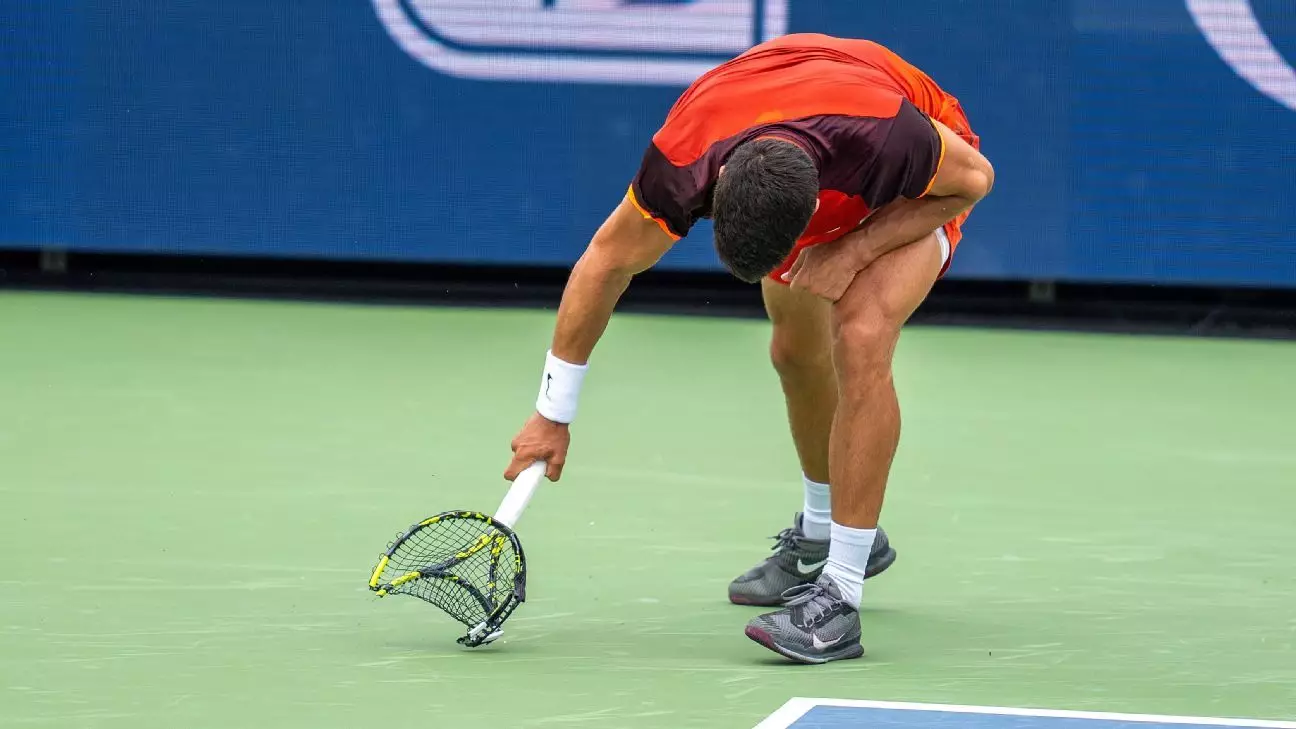Professional tennis matches are often high-stress situations, with players’ mental fortitude being tested just as much as their physical skills. This was exemplified by Carlos Alcaraz’s rare outburst of frustration during his match against Gael Monfils at the Cincinnati Open. Despite being a four-time Grand Slam winner, Alcaraz found himself unable to control his emotions, leading to a defeat that he described as the worst of his career.
Avoiding Mental Blocks: The Importance of Emotional Control
Alcaraz’s admission that he was unable to play any kind of tennis due to his overwhelming frustration highlights the crucial role emotional control plays in a player’s performance on the court. In a sport where split-second decisions can determine the outcome of a match, maintaining a clear and focused mindset is essential. Alcaraz’s inability to do so not only cost him the match but also left him feeling disheartened and eager to move on from the experience.
As Alcaraz looks ahead to the upcoming US Open, he faces the challenge of overcoming the mental hurdles caused by his disappointing performance at the Cincinnati Open. In a sport as mentally demanding as tennis, the ability to bounce back from defeat is a testament to a player’s resilience and determination. Alcaraz’s silver medal win at the Paris Olympics serves as a reminder of his capabilities, but he must now refocus and regroup in preparation for the next tournament.
While Alcaraz struggled with his emotions on the court, women’s world No. 1 Iga Swiatek demonstrated her mental strength with a convincing victory over Marta Kostyuk. Swiatek’s ability to maintain high intensity throughout the match and focus on her own game, regardless of the score, showcases the importance of mental composure in achieving success at the highest levels of tennis. Her disciplined approach to the game sets her apart as a formidable competitor in the women’s circuit.
Learning from Defeat: The Path to Improvement
Just as Alcaraz must learn from his defeat and use it as a stepping stone towards improvement, other players in the Cincinnati Open face similar challenges. Aryna Sabalenka’s victory over Elina Svitolina and Jasmine Paolini’s loss to Mirra Andreeva underscore the unpredictable nature of tennis matches and the need for players to adapt and grow from each experience. With the US Open approaching, these athletes must harness their mental toughness and strategic acumen to take on the competition.
The mental struggles faced by players in high-stakes tennis matches serve as a reminder of the importance of emotional control, resilience, and a growth mindset in achieving success on the court. Whether overcoming moments of frustration, rebounding from defeat, or maintaining focus under pressure, mental fortitude plays a critical role in determining the outcome of matches at the highest levels of the sport. As players continue to push themselves to their limits, both physically and mentally, they pave the way for personal growth and excellence in the sport of tennis.


Leave a Reply